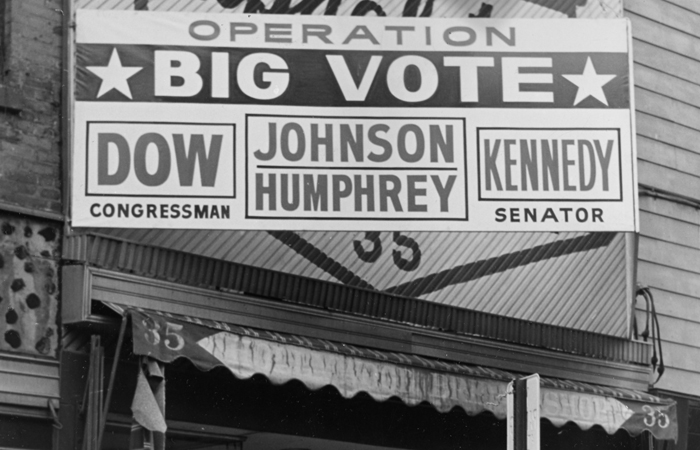This series is composed of meeting minutes, personal notes, correspondence, newsletters, event plans, agendas, and other materials related to organizing efforts or union business. Fred Pfeiffer worked with CSEA, SEIU, AFSCME, AFL-CIO, the Solidarity Committee of the Capital District, the Campaign for a Livable Minimum Wage, and the Capital District Workers Center. The largest amount of material is from his experiences with AFSCME, CSEA and SEIU.
Collections : [New York State Modern Political Archive]
New York State Modern Political Archive
Elected officials, interest groups, and activists from New York State.
Search Constraints
Start Over You searched for: Collecting Area New York State Modern Political Archive Remove constraint Collecting Area: New York State Modern Political Archive Level Series Remove constraint Level: SeriesSearch Results
Water Resources, 1979-2002 1.0 cubic ft.
This series consists primarily of material about watersheds and groundwater in New York State. It contains numerous reports prepared by New York State government agencies, particularly the Department of Environmental Conservation, the Department of Health, and their units. This series also contains other studies, newsletters, correspondence, and various photocopied material relating to water resources in New York. A significant amount of material is connected to planning issues.
Constituent Files, 1949-1969 37.4 cubic ft.
This series contains Paul A. Fino's constiuent files from his time in the United States House of Representatives. Fino's contiuents were mostly from the Bronx, New York, but some constiuents in Brooklyn wrote to Fino because they did not have a Republican representative. This series contains correspondence from constituents broken down into several categories: academy, general, jobs, servicemen, veterans, and visas. Soliders would often write to Fino and ask for help relating to hardship dischages, compassionate reassignments, medical discharges and transfers. While Fino did not have the authority to grant these assignments, he often had the contacts to help speed the process of recieving a response from the specified branches of the service.. This series also includes records of constiuents who asked Fino to reccommend them for the United States Naval Academy, constiuents asking for Fino to help them find a job, veterans asking for help related to Social Security and benefits, as well as general questions about housing and government information. While also helping family members of constituents secure visas to immigrate to this country. He also received requests asking for passes for tours of the White House, aricultural calendars, and flags that had flown over the capital. Many records contain medical information and social security numbers. These folders are restricted. Please contact an archivist for more information.
Minutes of meetings of the non-teaching professional staff prior to the formation of the State University Professional Association (SUPA) in October 1969; minutes of meetings of SUPA's Executive Committee and Governing Board; and minutes of meetings of Senate Professional Association's (SPA) Executive Board and its Representative Council. Many of the minutes in this series document the debate over whether non-teaching professionals should affiliate themselves with SPA or remain autonomous to work for their distinct interests. Some of the SPA minutes are barely legible.
Programs and Yearbooks, 1900-2003 0.66 cubic ft.
Programmes are titled by the Club's annual themes. Programmes and Yearbooks have a copy of the Club Song, list the paper titles and presenter's name, the names of officers and committee members, and a listing of all active members, associate members, nonresident members, honorary members, and members "in memoriam." Beginning in 1921, a list of reference books, or a bibliography associated with the year's theme, became a standard inclusion. Program Committee files describe the formulation of the yearly themes and the provision of direction and guidance for the subject of a member's paper. The Committee assigns the schedule where members commit to delivering a paper at a scheduled meeting.
Subject Files, 1948-1968 17.6 cubic ft.
This series contains a variety of materials relating to Paul A. Fino's career as a Member of Congress. The materials within this series allow for one to see the breadth and scope of activities that Mr. Fino engaged in over his career. Within this series there is a large amount of correspondence from his constituents, from that pertaining to specific legislation, as well as that from departments within the government in many cases Mr. Fino's reply is attached whether it be a form letter or a specific response. Included in the subject files are Mr Fino's remarks from the Congressional Record, relating to his position on other members' legislation, and press releases relating to specific bills he sponsored, the bills of which can be found within the series entitled Legislation. Mr. Fino recieved numerous invitaions during his time in office from constituents as well as to the inaugurations of Presidents Eisenhower and Kennedy which are located within folders entitled Inaugural Materials.This series also contains newspaper clippings, newsletters, and campaign materials from his own campaigns for congress and the senate as well as those relating to presidential campaigns.
